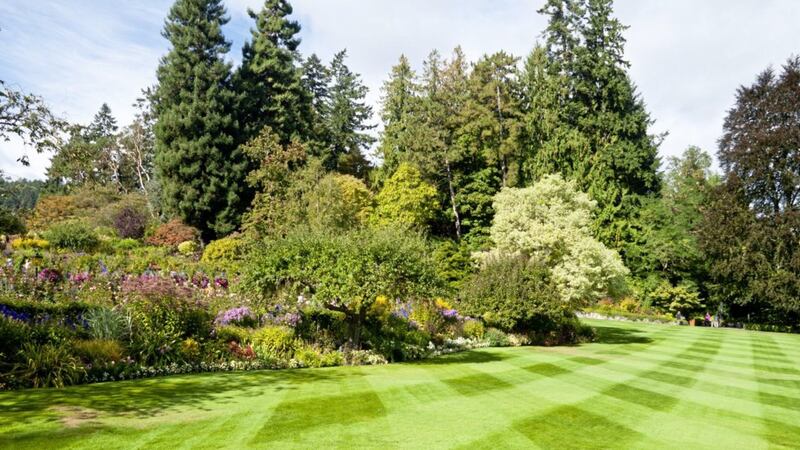I WAS disappointed not to see Sammy Wilson at the DUP’s Westminster election campaign launch earlier this week, where I was wearing my other hat. Had the opportunity arisen for a bit of small talk before or after the main event, it would have been interesting to hear the thoughts of the East Antrim MP – a keen gardener and a renowned climate change sceptic – on a recent report from the Royal Horticultural Society (RHS).
According to the RHS’s ‘Gardening in a Changing Climate’ report, the lush, green, “quintessentially British” lawn could become a thing of the past. It also warns that pests and diseases not yet established in some areas could become commonplace.
On the upside, though, gardeners in northern Britain and Ireland may enjoy a longer growing season.
Of course Sammy’s contention isn’t so much that there’s no such thing as climate change but more that it isn’t a man-made phenomenon and therefore human interventions designed to reduce it are a complete waste of time. It’s a perspective that conveniently dovetails with an ideology celebrating market forces and short-termism; one that rejects elites and the sort of experts who helped compile this RHS report.
‘Gardening in a Changing Climate’ is the first in-depth analysis into the effects of climate change on gardening since the RHS last investigated the issue in 2002.
That report concluded that gardeners would be basking in Mediterranean temperatures and so could grow more plants that thrive in bright, dry conditions. Its model projections forecast warmer but more variable climatic conditions.
The updated research has found that gardeners can expect more extreme weather, characterised by more variable, intense rainfall, combined with an increase in dry summers, which will be most pronounced in southern Britain and to a lesser extent in south-east Ireland.
Depending on which side of the north-south divide your garden falls will influence how you respond to the changes. Your garden’s situation, whether on sloping ground or on a flood plain, will also dictate how your design and practices are modified to cope with the new conditions.
Where there’s increased rainfall, for example, traditional plants such as tulips, alliums and asters may have to be planted in raised beds so their roots clear of the water table.
Gardeners experiencing higher temperatures will increasingly have to turn to heat loving plants, such as Aloe or lavender. And pne prediction that could have middle-aged men waking in a cold sweat is the demise of the lawn, which may be converted to dry meadows, as pressure on water supplies increases. So it's not all bad news.
Likewise, we northern gardeners will be able to grow a wider variety of plants that would have previously struggled to survive at this latitude, including Canna, the tender perennial summer bedding plant that produces bold leaves and showy flowers in shades of red, orange, yellows and pinks.
In a foreword to the report Professor Julia Slingo the former Met Office chief scientist said climate change was likely to be one of the "defining challenges of the 21st century". How humankind responds, she said, will determine future prosperity, health and well-being and the sustainability of Earth’s natural environment.
"But as this report makes clear, our perspective on what a garden should be and what we might like to grow in it will have to change," said Slingo.
"The good news is that we now have a pretty fair idea, thanks to climate science, of what our future weather and climate might be like – that means that we can start to plan now for the changes that we will need to introduce to our gardens."
A bit like Brexit, perhaps Sammy would probably regard all this climate upheaval as a good thing.








